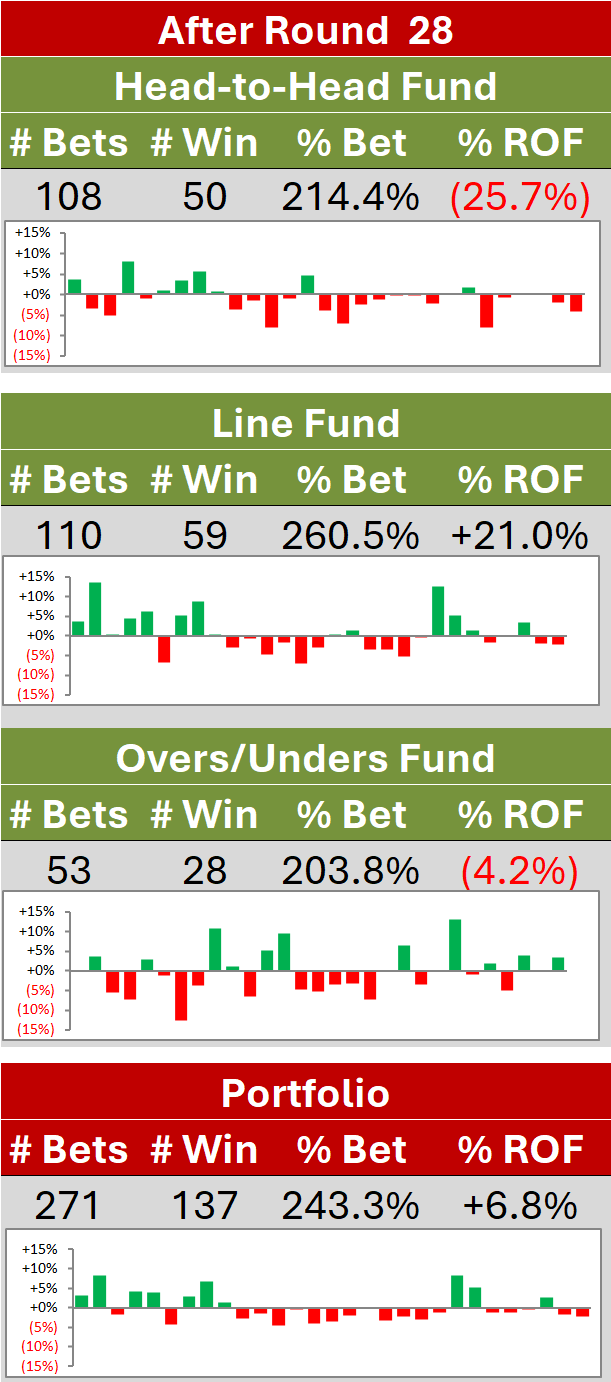Can We Use Head-to-Head Market Movements in the Line Market?
/Yesterday's post led to an interesting Twitter thread last evening, which included a suggestion to reanalyse the data to determine whether price movements in the Pinnacle head-to-head market might have predictive value in other markets for the same game, specifically in the line market.
Read More
